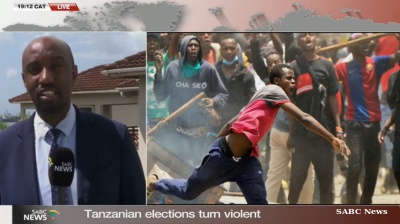Rwanda and the Democratic Republic of Congo (DR Congo) have reached a draft peace agreement intended to end decades of conflict in eastern DR Congo, where armed violence has intensified in recent months, the BBC has reported.
The draft deal, mediated by the United States and Qatar, sets out terms for the disengagement, disarmament, and conditional integration of armed groups operating in the region. Fighting escalated earlier this year after the M23 rebel group captured large areas of territory. Rwanda has been accused by DR Congo and international observers of supporting M23, a claim it denies, stating its military presence is aimed at containing groups such as the FDLR, which it alleges are backed by the Congolese government.
The peace agreement, expected to be signed formally in Washington next week in the presence of United States Secretary of State Marco Rubio, includes provisions for a joint security mechanism to help prevent future clashes. The US State Department described the draft as the result of three days of “constructive dialogue” covering political, security, and economic issues. The document builds on an earlier agreement reached in April in which both countries committed to respecting each other’s sovereignty.
The region’s stability carries significant geopolitical and economic implications. Eastern DR Congo is rich in minerals, including coltan, a key component in electronics manufacturing. Restoring peace could unlock billions of dollars in Western investment. In recent months, DR Congo had reportedly sought US support by offering access to its critical mineral resources as rebel advances weakened government control.
However, key issues remain unresolved. It is unclear whether M23 will relinquish the areas under its control or if Rwanda will withdraw its forces. The disarmament of the FDLR, the return of Congolese refugees currently in Rwanda, and the reopening of humanitarian corridors. including Goma airport, remain points of contention.
Past peace efforts have repeatedly failed to produce lasting stability. Angola brokered two agreements last year on the withdrawal of Rwandan troops, but both collapsed due to a lack of ministerial support, prompting Luanda to abandon its mediation role.
News

Serbian police arrest dozens during clashes outside parliament
The confrontation erupted when anti-government protesters faced off with ruling party supporters camping opposite the parliament building.

Iran-US ties impossible, Supreme Leader Khamenei declares
Iran's Supreme Leader Ayatollah Ali Khamenei rules out cooperation with United States unless Washington withdraws regional military presence and support for Israel, speaking ahead of 1979 embassy takeover anniversary.

Moldova’s new government sworn in with goal to sign EU accession treaty by 2028
With a fragile majority in the parliament, the new cabinet has pledged to prioritise EU accession and economic development.

Northern Afghanistan hit by M6.3 tremor
A powerful earthquake has struck northern Afghanistan, leaving at least four people dead and scores injured, according to local officials. The numbers are expected to rise significantly.




